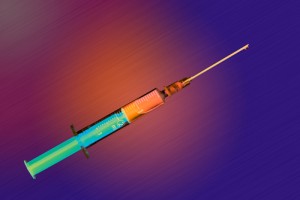 In a recent study published in Nature, entitled “Checkpoint blockade cancer immunotherapy targets tumour-specific mutant antigens”, a team of researchers from the Washington University School of Medicine found that tumour-specific mutant antigens can be used to develop personalized vaccines for patients with metastatic melanoma.
In a recent study published in Nature, entitled “Checkpoint blockade cancer immunotherapy targets tumour-specific mutant antigens”, a team of researchers from the Washington University School of Medicine found that tumour-specific mutant antigens can be used to develop personalized vaccines for patients with metastatic melanoma.
Evidence shows that the immune system determines the outcome of growing cancers, as it can function as a tumour promoter by facilitating cellular transformation, as a tumour growth facilitator, and as a shaper of tumour cell immunogenicity. On the other hand, the immune system can act as a tumour suppressor that either destroys growing tumours or restricts their expansion. However, even in individuals with a capable immune system, cancers still occur as a result of cancer-induced immunosuppression. Studies have shown that immunosuppression is mediated by the cytotoxic T-lymphocyte associated antigen-4 (CTLA-4) and programmed death-1 (PD-1), two immunomodulatory receptors expressed on T cells.
Recent trials in several types of cancers found clinical benefits in monoclonal-antibody-based treatments that target CTLA-4 and/or PD-1 (checkpoint blockade). However, the team of researchers from Washington University hypothesized it could be beneficial to identify tumour antigens that would function as the targets of T cells activated by checkpoint blockade, and whether these antigens could be used to create tumour specific vaccines.
The team of researchers used genomics and bioinformatics in mice models of two distinct sarcoma cell lines and examined whether they expressed sufficient immunogenicity to be controlled by checkpoint blockade therapy. Specifically, the researchers identified tumour-specific mutant proteins as a class of T-cell rejection antigens following anti-PD-1 and/or anti-CTLA-4 therapy, testing vaccines were they combined these mutant tumours proteins to stimulate tumour rejection.
The results revealed that the vaccines enabled the immune system to destroy or remit tumour cells in nearly 90 percent of sarcoma cell lines. As such, along with significant targets for checkpoint blockade immunotherapy, tumour mutant antigens could also be developed for personalized vaccines.
In a recent press release Dr. Robert Schreiber, PhD, the Alumni Professor of Pathology and Immunology and director of the Center for Human Immunology and Immunotherapy Programs at Washington University’s stated “This is proof that personalized cancer vaccines can be very powerful and need to be applied to human cancers now.”
Moreover, Dr. Schreiber added, “We thought it would be safer to find ways to identify the mutated tumor proteins that are the specific targets of the reactivated T cells that attack the tumors,” “We believe we can incorporate those proteins into vaccines that only unleash the T cells on the tumors, and so far, our tests have been very successful.”


